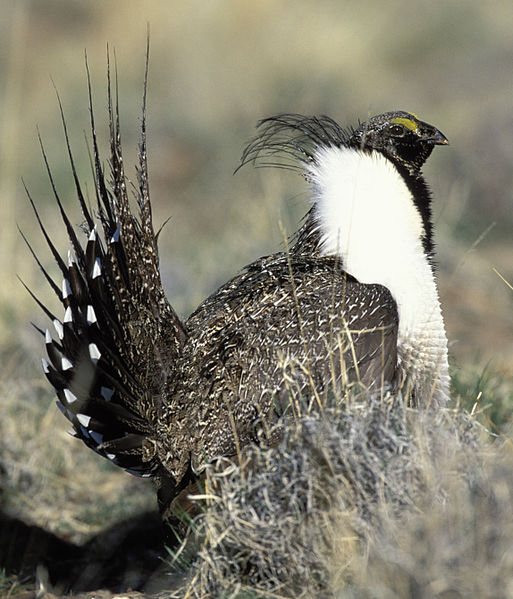If M. and I are short on dinner-table conversation, we can always turn to perennial topics such as "What ever happened to ecopsychology?"
According to Wikipedia (not sure how reliable this is) the term was coined in 1992 to mean studying "the relationship between human beings and the natural world through
ecological and
psychological principles.
"*
I tend to think of it as a psychology built on the idea that the health of the natural environment and human mental health are connected.
It is an idea that has seemed on the verge of breakthrough for twenty years. Back in September 1994, for instance,
McCall's magazine ran an article called "The Totally Natural Way to Lift Your Spirits," all about
biophilia and the benefits of being in a natural environment.
(As usual, I define "nature" and "natural" as places and processes not under control of the human ego, something I lifted from
Gary Snyder.)
"Wow," I thought on reading the
McCall's piece, "this is the coming thing."
It has not really happened. Oh, there is a book here and there, a college course here and there. You can get a
master's degree in ecopsychology at Naropa University in Boulder in a "low-residency" program. (But Blogger's spell-checker does not recognize the word.)
There is a peer-reviewed journal called
Ecopsychology too, partly online.
A 2010
New York Times article, "Is There an Ecological Unconscious?" defined ecopsychology as a "revolutionary paradigm":
Just as Freud believed that neuroses were the consequences of dismissing our deep-rooted sexual and aggressive instincts, ecopsychologists believe that grief, despair and anxiety are the consequences of dismissing equally deep-rooted ecological instincts.
The writer contrasts ecopsychology with the biologist E. O. Wilson's related idea of "biophilia":
But unlike Wilson and his followers, ecopsychologists tend to focus on the pathological aspect of the mind-nature relationship: its brokenness. In this respect, their project finds echoes in the culture at large. Recently, a number of psychiatrically inflected coinages have sprung up to represent people’s growing unease over the state of the planet — “nature-deficit disorder,” “ecoanxiety,” “ecoparalysis.” The terms have multiplied so quickly that Albrecht has proposed instituting an entire class of “psychoterratic syndromes”: mental-health issues attributable to the degraded state of one’s physical surroundings."
We are somewhat able to accept a "mind-nature relationship" when it comes to children. Richard Louv got some traction with his "
last child in the woods" and "nature-deficit disorder" approach, and the idea that kids need to develop outdoors ties in at one corner with the
Free Range Kids movement.
Yet the notion of "reshaping modern psychology" (to borrow from the journal's mission statement) is threatening.
Ecopsychology says that adults are deeply messed up by environmental issues, and no one's insurance — nor Obamacare — will cover treatment for
that. If a problem can't be fixed with a few sessions with the therapist, some cognitive exercises, or a prescription for a psychotropic drug, who wants to hear about it? Too scary! Too many implications!
It's OK for kids, sure— that is like saying that bicycles are OK for kids, but for adults they are just a hobby or fitness gadgets, not viable transportation. Only this would be bigger.
* Theodore Roszak is supposed to have invented the term "ecopsychology." He is also supposed to have invented the term "counterculture" in the 1960s. I am not sure if he did either, or if he was just real good at self-publicity.


